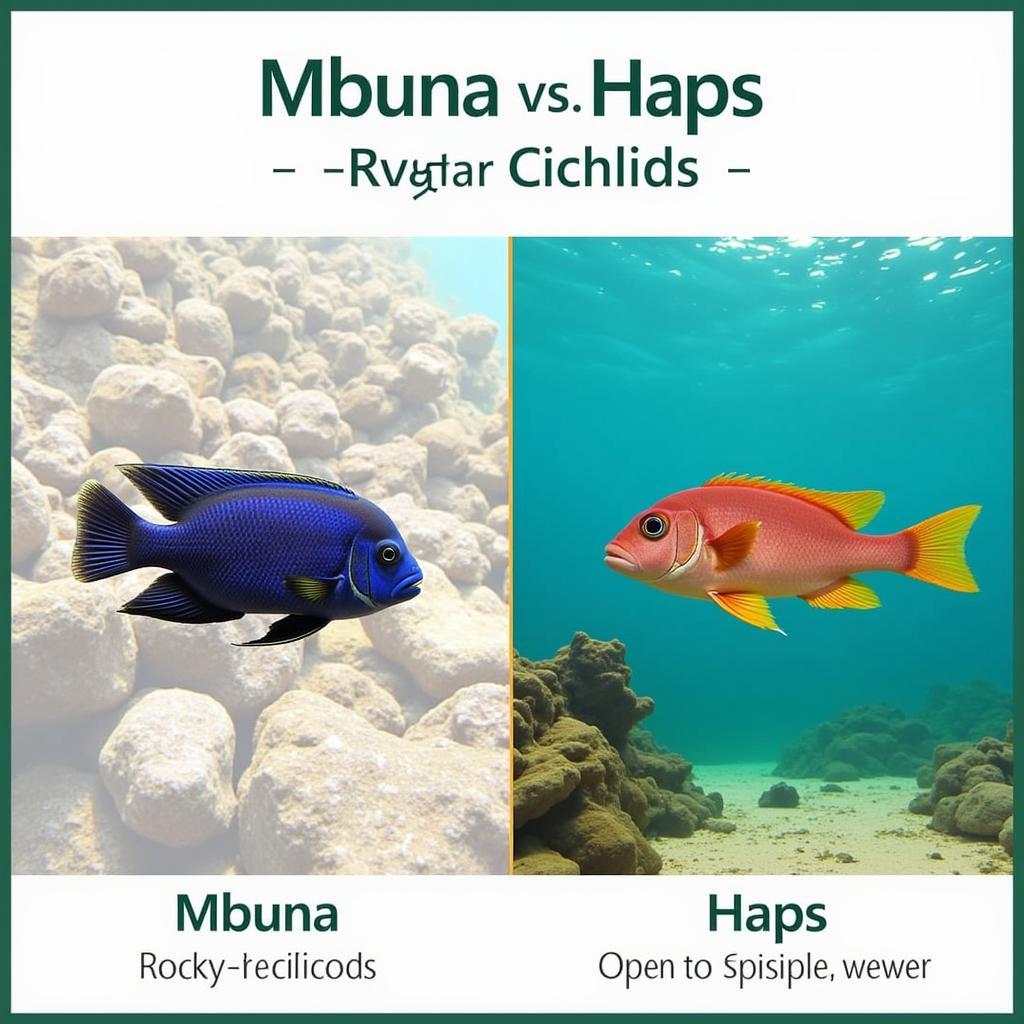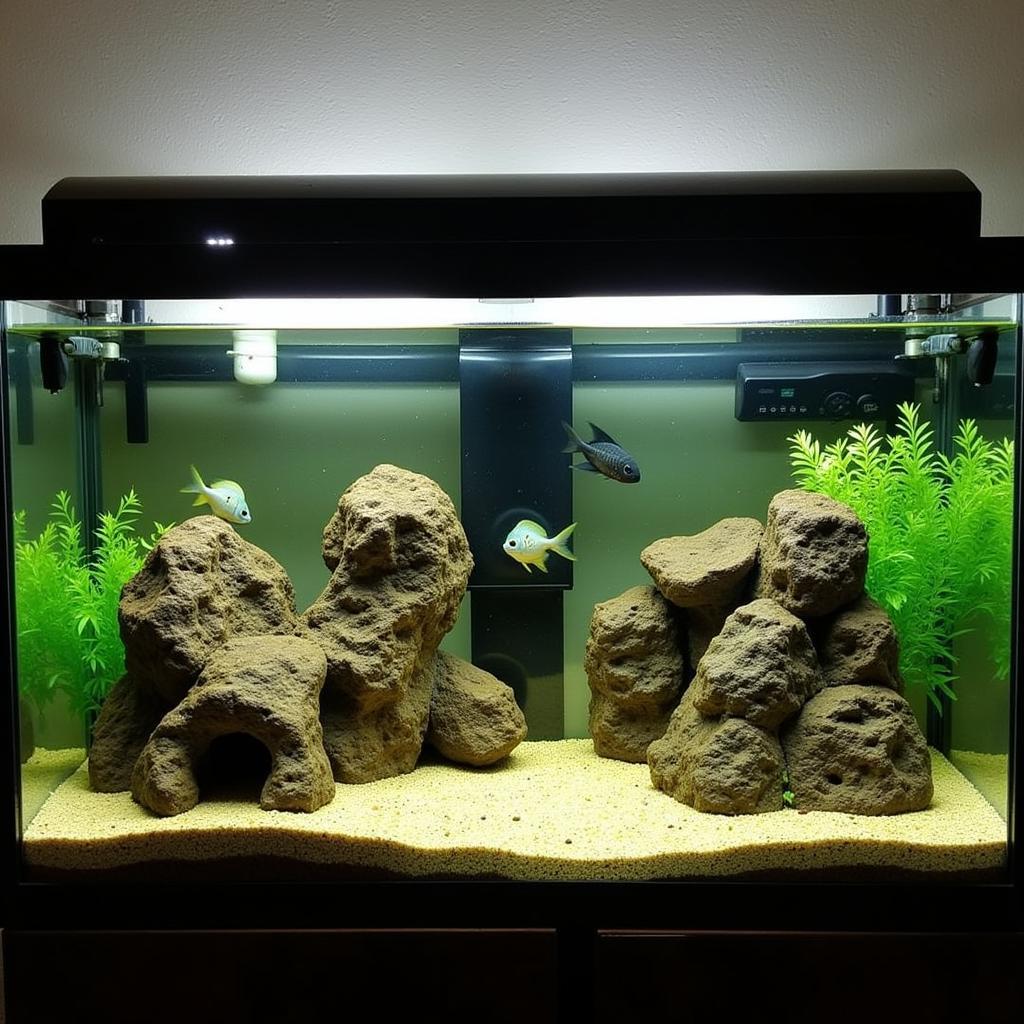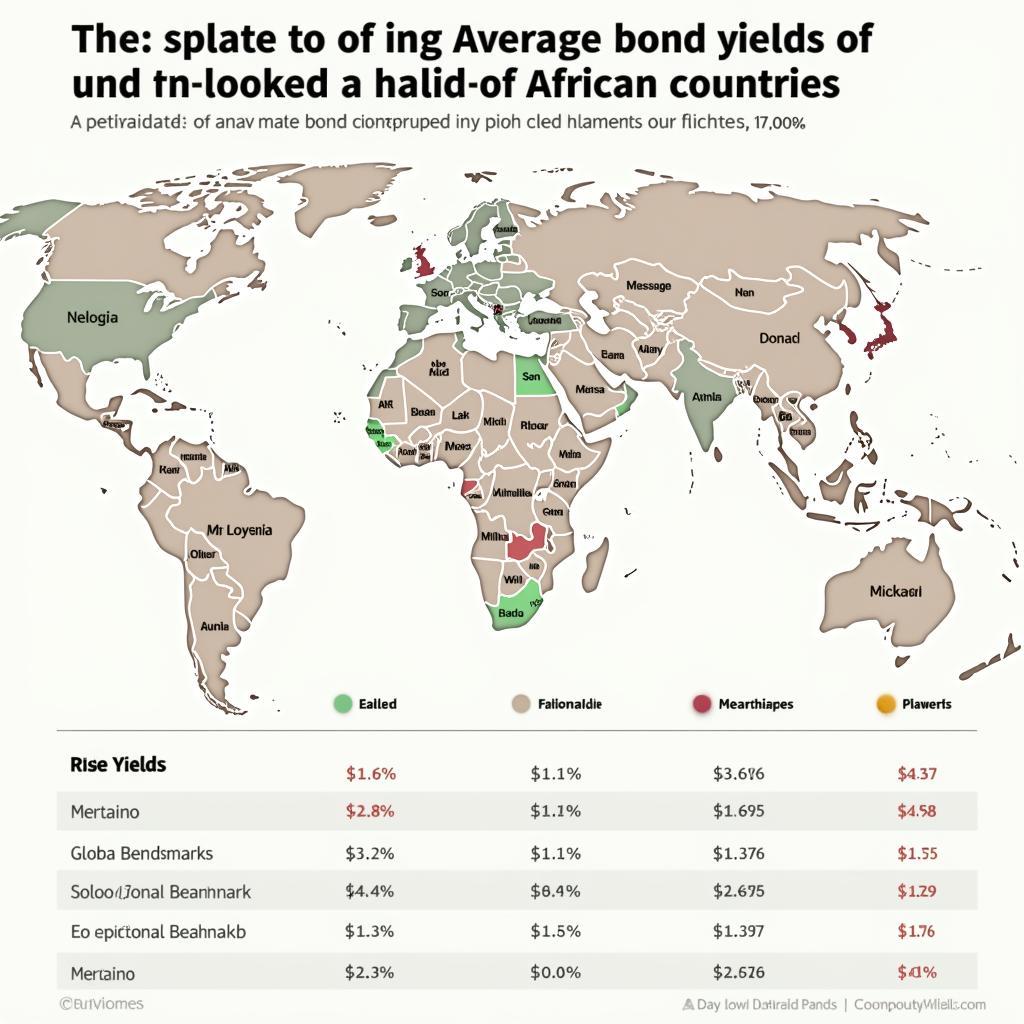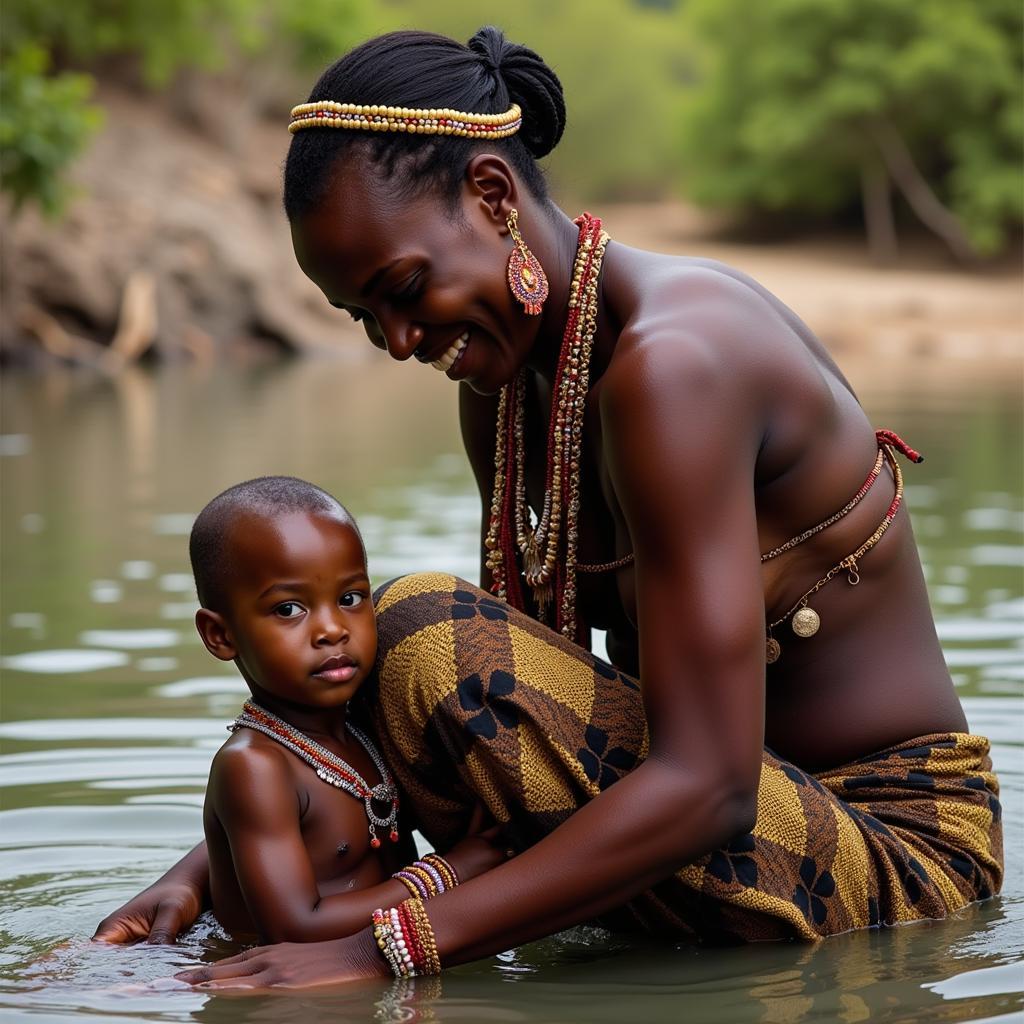African Cichlid Compatibility Chart: A Comprehensive Guide
Understanding African cichlid compatibility is crucial for a thriving aquarium. An African Cichlid Compatibility Chart helps aquarists select suitable tank mates, minimizing aggression and ensuring a harmonious environment. This guide explores the complexities of cichlid compatibility, offering practical advice for creating a successful cichlid community.
Factors Affecting African Cichlid Compatibility
Several factors influence the compatibility of African cichlids. Tank size plays a vital role. Larger tanks provide more space, reducing territorial disputes. Water parameters are also essential. Maintaining appropriate pH and temperature levels contributes to the overall health and reduces stress, which can trigger aggression. Finally, the cichlids’ temperament and individual personalities can significantly impact their compatibility.
Understanding these factors is the first step in building a peaceful cichlid community. Ignoring them can lead to constant fighting, injuries, and even death. Choosing compatible species is essential for the long-term health and well-being of your fish.
Are you ready to learn more about creating the ideal cichlid community? Let’s delve deeper into the world of African cichlids and explore some specific compatibility scenarios. You can also reference an African cichlid chart for a quick overview.
Exploring Different Cichlid Groups
African cichlids are broadly categorized into two groups: Mbuna and Haps. Mbunas are generally smaller, more aggressive, and primarily rock-dwelling. Haps, on the other hand, are often larger, less aggressive, and tend to inhabit open water areas. Combining these two groups in the same tank can be challenging due to their differing temperaments and habitat preferences.
Within these broad groups, further distinctions exist based on species and origin. For instance, while Mbunas are typically aggressive, some species are known to be more peaceful than others. Similarly, Haps can exhibit varying levels of aggression depending on their specific species and environment. Knowing these subtle differences is key to achieving a harmonious tank. Check out this resource on African cichlids and discus fish for more insights into compatibility with other species.
 African Cichlid Mbuna and Haps Comparison
African Cichlid Mbuna and Haps Comparison
Creating a Compatible Cichlid Tank
Careful planning is crucial for a successful cichlid tank. Start by researching the specific species you are interested in. Consider their adult size, temperament, and preferred water parameters. Choose a tank size appropriate for the number and size of fish you plan to keep. Overcrowding is a common cause of aggression in cichlids.
Introduce new fish simultaneously to avoid established hierarchies. Provide ample hiding places and rock formations to break up sightlines and reduce territorial disputes. Regular water changes and a balanced diet also contribute to a healthy environment and reduce stress-induced aggression. Don’t forget to consult an African cichlids size chart to estimate the space requirements for your chosen species.
 African Cichlid Tank Setup Example
African Cichlid Tank Setup Example
Expert Insights on African Cichlid Compatibility
Dr. Abena Kwame, a renowned ichthyologist specializing in African cichlids, advises, “Understanding the natural habitat of cichlids is crucial for their successful keeping. Replicating their environment in the aquarium can significantly reduce stress and promote peaceful cohabitation.”
Another expert, Dr. Joseph Otieno, adds, “Regular observation is key. Even with careful planning, individual personalities can clash. Be prepared to intervene if necessary by rearranging the tank or removing aggressive individuals.”
Finally, Dr. Fatima Moussa reminds us, “Dietary needs play a significant role. Ensuring proper nutrition through a balanced diet tailored to your specific cichlid species can further minimize aggression and promote a harmonious environment.”
Conclusion
Creating a thriving African cichlid community requires careful planning and an understanding of the African cichlid compatibility chart. By considering factors such as tank size, water parameters, species temperament, and individual personalities, aquarists can create a vibrant and harmonious underwater world. Remember to research thoroughly and choose your cichlids wisely. A well-planned tank will reward you with a fascinating display of color and behavior. Check the recommended African dwarf frog water temp if you plan on housing these amphibians with your cichlids.
FAQ
- What is the best tank size for African cichlids?
- The ideal tank size depends on the specific species and number of fish you plan to keep. A larger tank is always better.
- Can I mix Mbuna and Haps cichlids?
- Mixing Mbunas and Haps can be challenging due to their different temperaments and habitat preferences. Careful research and planning are essential.
- How do I reduce aggression in my cichlid tank?
- Providing ample space, hiding places, and a balanced diet can help reduce aggression.
- What are the ideal water parameters for African cichlids?
- Specific water parameters vary depending on the species, but generally, a slightly alkaline pH and a temperature between 75-82°F (24-28°C) is suitable.
- How many cichlids can I keep in a 55-gallon tank?
- The number of cichlids suitable for a 55-gallon tank depends on their adult size. Overcrowding should be avoided.
- What are some signs of incompatible cichlids?
- Constant fighting, fin nipping, and chasing are signs of incompatibility.
- How do I introduce new cichlids to an established tank?
- Introduce new cichlids simultaneously to avoid established hierarchies. Rearranging the tank decor can also help.
Common Cichlid Tank Issues
- Aggression: This is the most common issue and often stems from overcrowding, incompatible species, or lack of hiding places.
- Disease: Poor water quality and stress can lead to disease outbreaks.
- Overgrazing: Ensure proper algae control and avoid overfeeding.
- Territorial Disputes: Provide enough rocks and caves to establish territories.
Further Exploration
Consider researching specific cichlid species you’re interested in and learning about their individual needs. Explore different tank setups and aquascaping ideas.
Contact Us
When you need support, please contact us via Phone: +255768904061, Email: [email protected], or visit our address: Mbarali DC Mawindi, Kangaga, Tanzania. We have a 24/7 customer support team.



